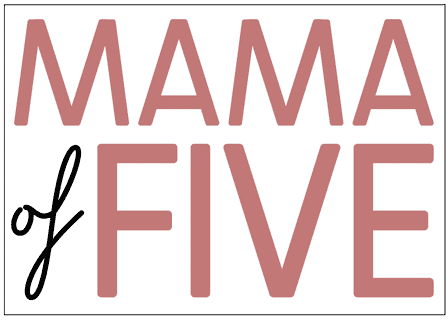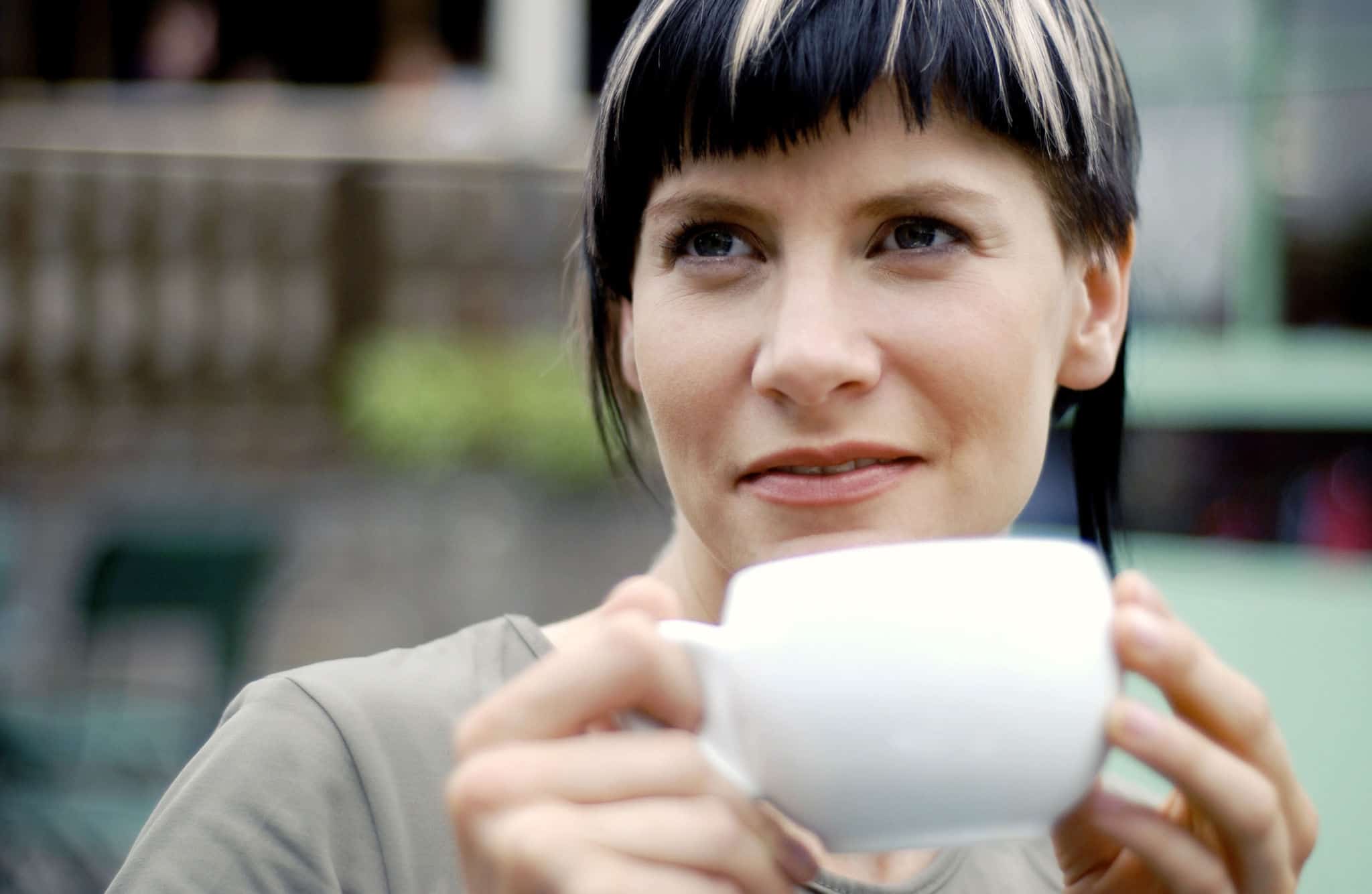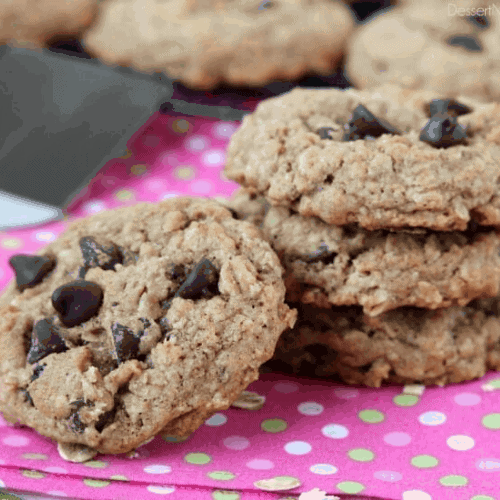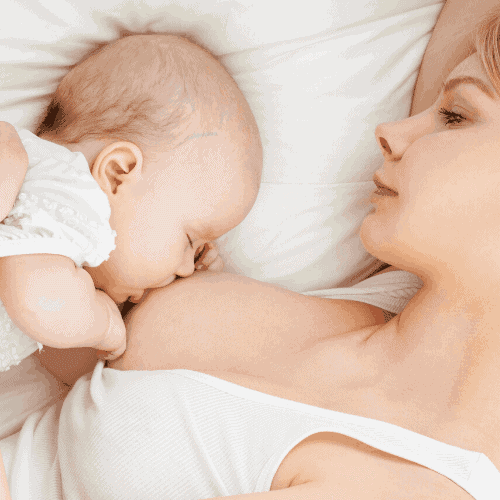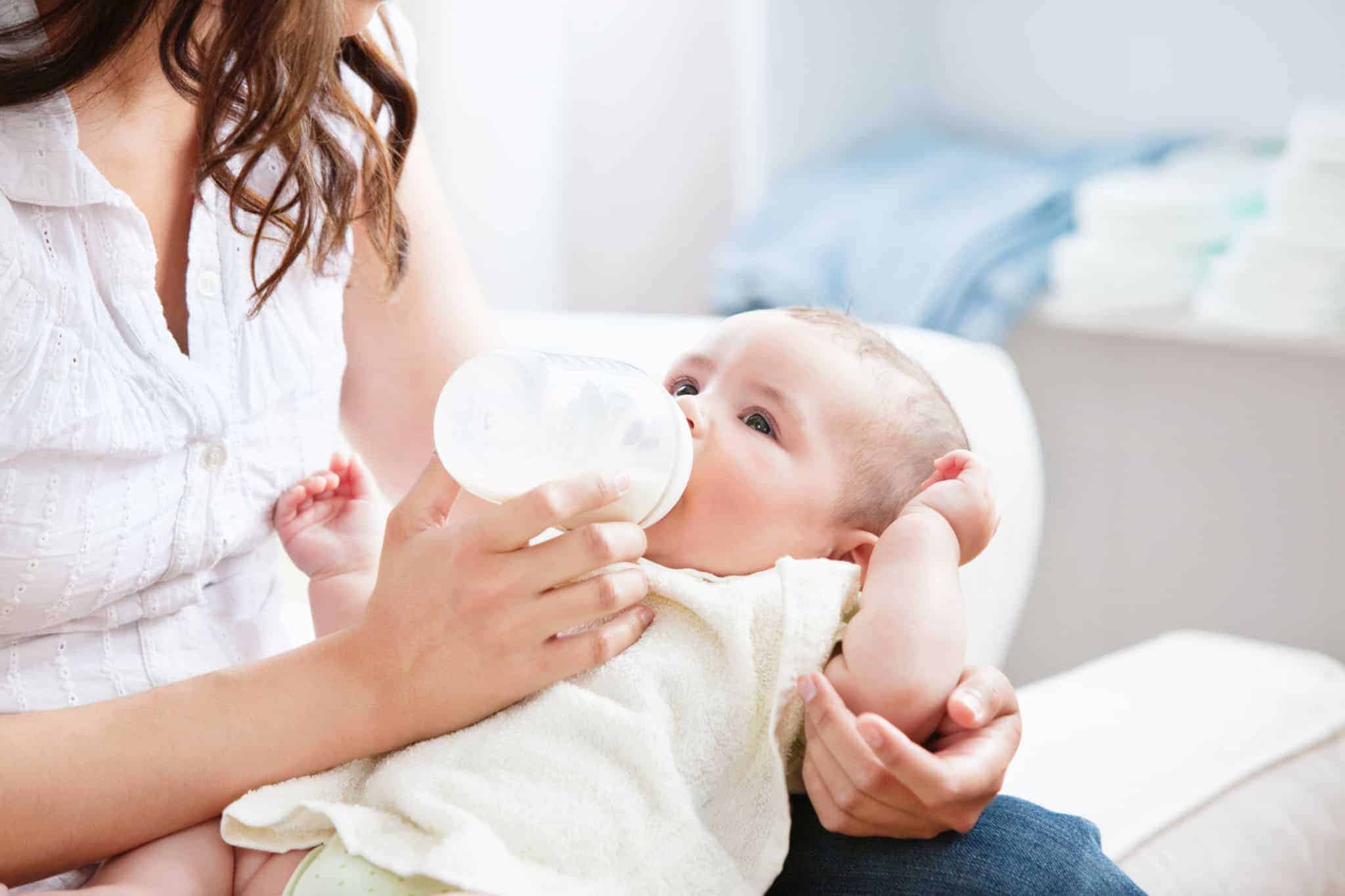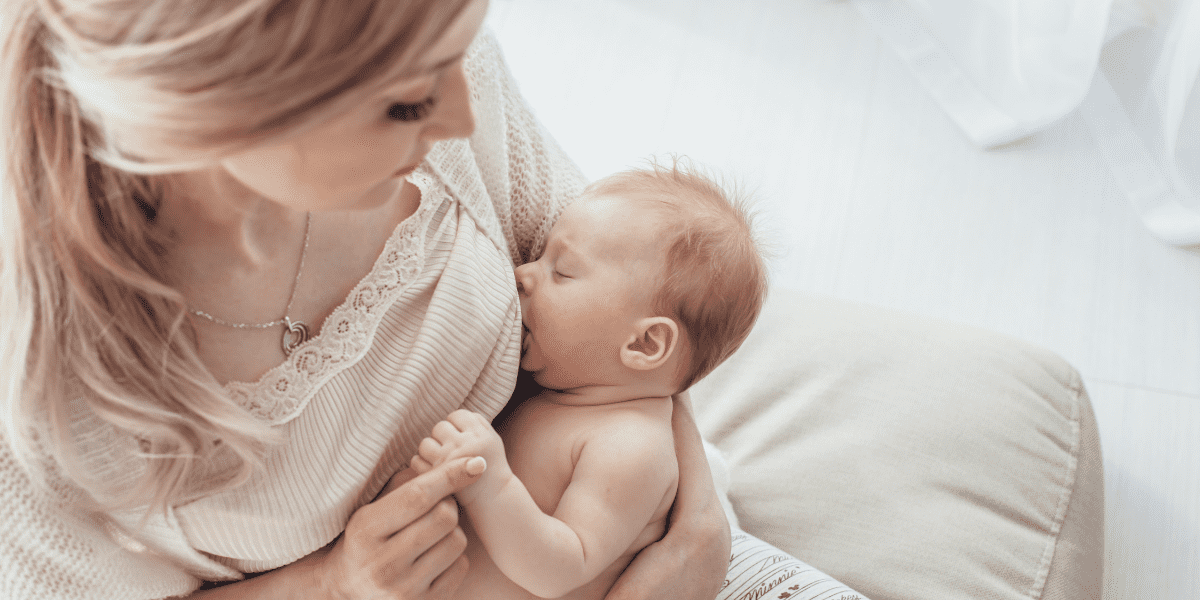So, you’ve given birth to your bundle of joy and have decided to start breastfeeding. Right now, your body is awash with hormones which are designed to help you produce enough milk to feed your child.
However, you might be wondering if it’s still possible to get pregnant while breastfeeding. Perhaps you’d like to conceive again and are wondering whether it’s viable to continue feeding your child, or maybe you’d really rather not get pregnant and want to be aware of your chances.
The short answer to this question is “yes, you can get pregnant while breastfeeding”. But as ever, things are much more complicated than a simple “yes or no” answer.
As an Amazon Associate I earn from qualifying purchases. The links below may be affiliate links. Please read my disclosure policy for more information.
How Quickly Can a Woman Get Pregnant After Giving Birth?
First of all, let’s look at the widest possible scope for all mothers, whether you choose to breastfeed or not. After you’ve given birth, it’s possible for you to get pregnant after only three weeks. This is true even if you are breastfeeding and even if your periods haven’t started again.
However, depending on your circumstances, pregnancy may be more or less likely to happen again after this three week period. Every woman is different, and many women find that it’s usually a longer time before they’re able to get pregnant.
To be certain, it might be an idea to look into contraceptive methods that are safe for mother and baby. If you have health problems or are concerned for any reason, a medical professional should be able to advise the best contraceptive method for you. We’ll look into a few of your options later.
Related: EARLY PREGNANCY SIGNS BEFORE A MISSED PERIOD
Is It Hard to Get Pregnant While Breastfeeding?
If you’re breastfeeding, it will be more difficult for you to get pregnant. This is because of those hormonal changes that we mentioned earlier, which allow you to breastfeed in the first place. There are four important hormones to bear in mind, which are progesterone and estrogen, and prolactin and oxytocin.
Progesterone and estrogen are the hormones responsible for preparing the body for menstruation, making them an important component of normal reproductive function. Prolactin is the hormone that allows your body to make milk, causing the breasts to grow and produce milk during pregnancy and after childbirth.
Oxytocin is what’s known as a multifunction hormone. It’s probably best known as the “love hormone”, as it is involved in human bonding and helps people feel more relaxed. However, it also is an important part of the female reproductive system.
Oxytocin is responsible for stimulating contraction when a mother goes into labor. With a breastfeeding mother, oxytocin is what promotes milk to move through the milk ducts to the nipple, allowing the baby to feed.
Now that we know what these hormones do and how they’re important for a new mom, let’s look at what happens when a mother starts breastfeeding. Shortly before you give birth, your body will start producing prolactin and will lessen the production of progesterone and estrogen. The prolactin will, in turn, cause more oxytocin to be released.
If you choose to breastfeed your child, this different hormonal state will continue in order to allow you to continue producing enough milk to feed your baby. Because you have much less progesterone and estrogen, your reproductive system will take much longer to kick into gear and so you’ll find it harder to get pregnant.
Related: A Sudden Drop in Milk Supply? Here’s what to do.
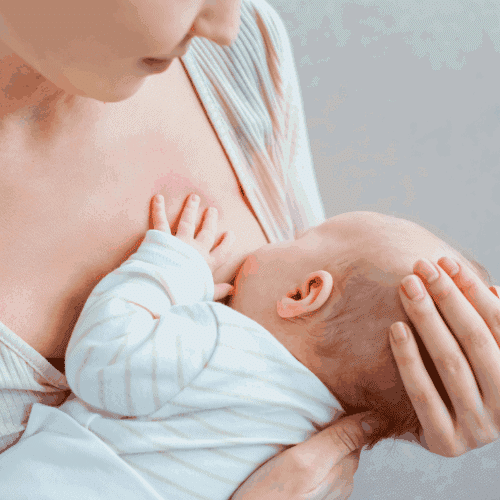
What Are the Chances of Getting Pregnant While Breastfeeding?
You’ll be pleased to hear that we can estimate the chances of a mother getting pregnant while breastfeeding, at least to an extent. However, your fertility while breastfeeding does depend on a few different factors.
First of all, the amount of time that has elapsed since giving birth is hugely important. If you’ve only just given birth, it’s extremely unlikely that you’re going to get pregnant again because it will pretty much always be at least a few weeks before your next ovulation. You need to have ovulated before you can pregnant.
The longer the time period since you’ve given birth, the more likely that it’ll be that you get pregnant again. You’ll also need to bear in mind how often you’re breastfeeding your child. A mother who exclusively breastfeeds her child will be much less likely to get pregnant than a mother who supplements feedings.
Let’s combine these two factors and provide an actual figure. If you gave birth less than six months ago and you’ve been exclusively breastfeeding, you will only have about a 2% chance of getting pregnant.
As a birth control method, exclusive breast feeding is at least as effective as using condoms, at least for the first six months. After this, the chances of pregnancy begin to increase.
Related: How to start Pumping while breastfeeding
Can You Get Pregnant While Breastfeeding and No Period?
For women, regular periods are one of the signs of fertility. But this doesn’t mean it’s impossible for a mom to get pregnant before her first post-birth period. While rare, it is still possible for you to get pregnant while you’re breastfeeding and even if you haven’t yet restarted your periods.
This is because it’s the ovulation part of the reproductive process that allows a woman to get pregnant, not the menstruation part. Periods are simply an easier way for many women to track where they are in their reproductive cycles, because the symptoms are usually much more noticeable.
Because ovulation happens about two weeks before menstruation, you can get pregnant before realizing that your cycle has started up again. Again, it’s rare, because it would involve you getting pregnant as soon as it was possible and while your fertility is still lower than normal due to breastfeeding, but it is possible.
If you’re worried about this, perhaps because you aren’t exclusively breastfeeding or your baby is over six months old, it might be an idea to track your reproductive cycle by other means. Or you can try a contraceptive that won’t harm you or your baby, just to keep safe.
Related: Do I have low milk supply?
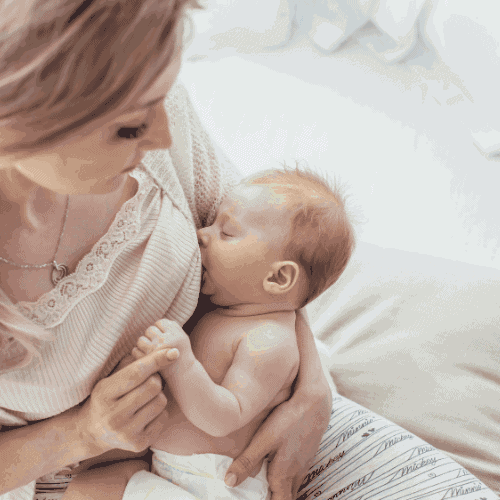
What Happens if You Get Pregnant While Breastfeeding?
If you do get pregnant while breastfeeding, you might be worried about the effect that it has on both the older baby and the pregnancy itself. However, if you keep informed and keep an eye on things, it likely won’t be an issue.
One of the concerns that some moms have is that of the oxytocin released while breastfeeding. As we know, oxytocin is the hormone that causes contractions and helps with labor. However, for most mothers, this won’t be an issue.
The amount of oxytocin released during breastfeeding is rarely enough to cause the cervix to open prematurely. We also release oxytocin during sex, which is usually considered to be safe during pregnancy. Sure, breastfeeding can help a slow labor along, but shouldn’t cause an early delivery.
However, if your pregnancy is risky, you might be advised to stop breastfeeding by a medical professional. This would be if you’re carrying multiples, or if you have a history of miscarriages and early deliveries.
Another thing to consider is making sure that your unborn baby receives all the nutrients it needs while you continue breastfeeding your child. If you get enough rest, and make sure that you eat nutrient rich food, you should be fine. You might need a few more calories to keep everything going, so don’t be surprised if you’re hungrier than you were with your last pregnancy.
You will still experience pregnancy symptoms while breastfeeding, which might make things a little more difficult for you. Morning sickness, nipple and breast soreness, and fatigue could affect you even more if you’re breast feeding. Don’t be afraid to ask for support from family and friends during this time.
Finally, around the fourth month or so, you’ll likely find that your milk production will reduce. This is because of hormonal changes in your body preparing for the new baby. The composition and taste of your milk will change as well. Your child might nurse less or wean completely and might need supplementation.
Unfortunately, there’s nothing you can do to increase your breast milk production at this time. However, continuing to breastfeed won’t effect your milk supply after you’ve given birth to your new child, so you needn’t worry about having less milk for the baby.
How Can I Avoid Getting Pregnant While Breastfeeding?
If you don’t want to get pregnant, there are things you can do to make sure that it doesn’t happen. If it’s been less than six months since you gave birth and you haven’t started your periods yet, exclusively breastfeeding your child will massively reduce the chance of pregnancy.
However, it’s sometimes best to use a contraceptive to make sure. Many contraceptives are safe to use while breastfeeding, but it’s always best to double check with a medical professional. Some birth control, such as contraceptives containing estrogen, should be avoided for at least the first three weeks.
Condoms are always a safe bet, because they don’t have any effect on your body or hormones. If you have any health problems, such as a high blood pressure or clotting issues, you should always double check that a contraceptive is safe to use.
Related: 11 of the Biggest Breast Pumping Mistakes?
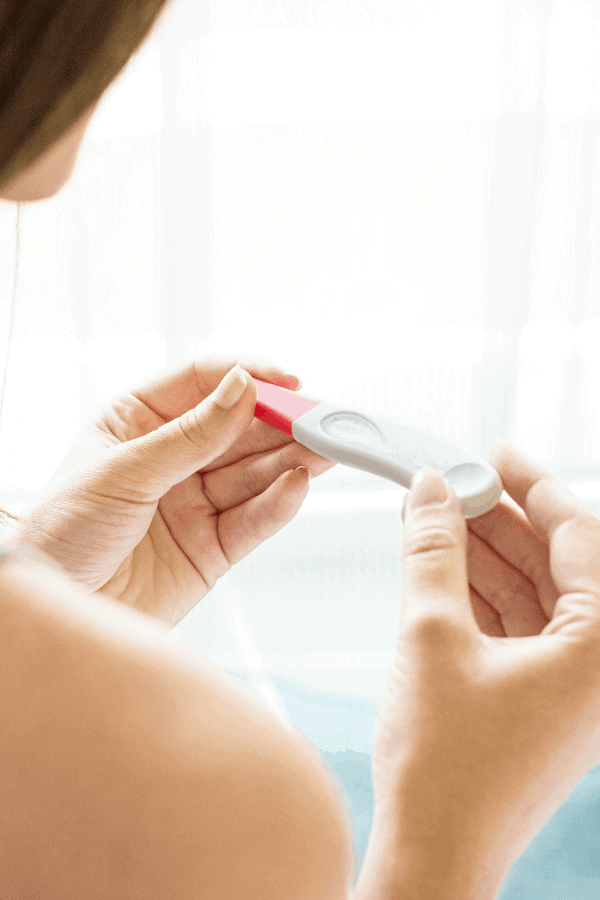
Should I Stop Breastfeeding to Get Pregnant?
You don’t necessarily have to stop breastfeeding to get pregnant, although you will find that it’s easier to conceive if you’ve already weaned your child. But if you’d rather continue breastfeeding while trying for a new baby, there’s no real reason not to.
If you do get pregnant, you still don’t have to stop breastfeeding, unless advised to by a medical professional. Some moms continue to breastfeed their older child while breastfeeding their newborn in a process called tandem feeding. Others prefer to wean the older child at this point.
Remember, all mothers and circumstances are different and tandem feeding has its advantages and disadvantages. It’s always important to consider what is best for you and your family.
How Can I Get My Fertility Back While Breastfeeding?
If you decide to have another child but don’t want to stop breastfeeding, you may find yourself wanting to increase your chances. This is especially true if your periods haven’t yet returned, or you’ve been trying to conceive without luck for a little while.
First, let’s look at the natural route. You don’t have to stop breastfeeding to get pregnant, as we’ve discussed, but you can always reduce the amount that you breastfeed. Beginning the weaning process doesn’t mean completely giving up on breastfeeding, and you can wean as slowly as you like.
If you decide to take that route, it’s been found that sudden changes in breastfeeding routines are more likely to kickstart your fertility back into gear. Rather than reducing the feeds little by little, try skipping a feed entirely. Obviously, you’ll want to supplement your child during this feed, so they don’t miss out. You can do this with either formula milk or with age-appropriate solid food.
There are also some hormone treatments that you can take while breastfeeding. These will artificially boost your fertility and chances of getting pregnant. Obviously, you will need to be careful and consult a medical professional to make sure that your fertility treatments are safe for your feeding child.
Even if a hormone treatment is safe, it might change the taste of your breastmilk. The same thing can happen when a nursing mother has her periods, as the estrogen hormone does have an effect on the milk.
This might mean that your child will nurse less often if they don’t like the taste of the milk. So, keep an eye on your baby’s weight, diapers, and feedings habits to ensure they’re still nourished. If need be, you can always supplement their feeds.
Does Breastfeeding Increase Chance of Twins?
This is one of those questions that sounds like a myth, but you might be surprised to learn that a recent study has confirmed this. In fact, nursing mothers can be up to nine times more likely to conceive twins.
